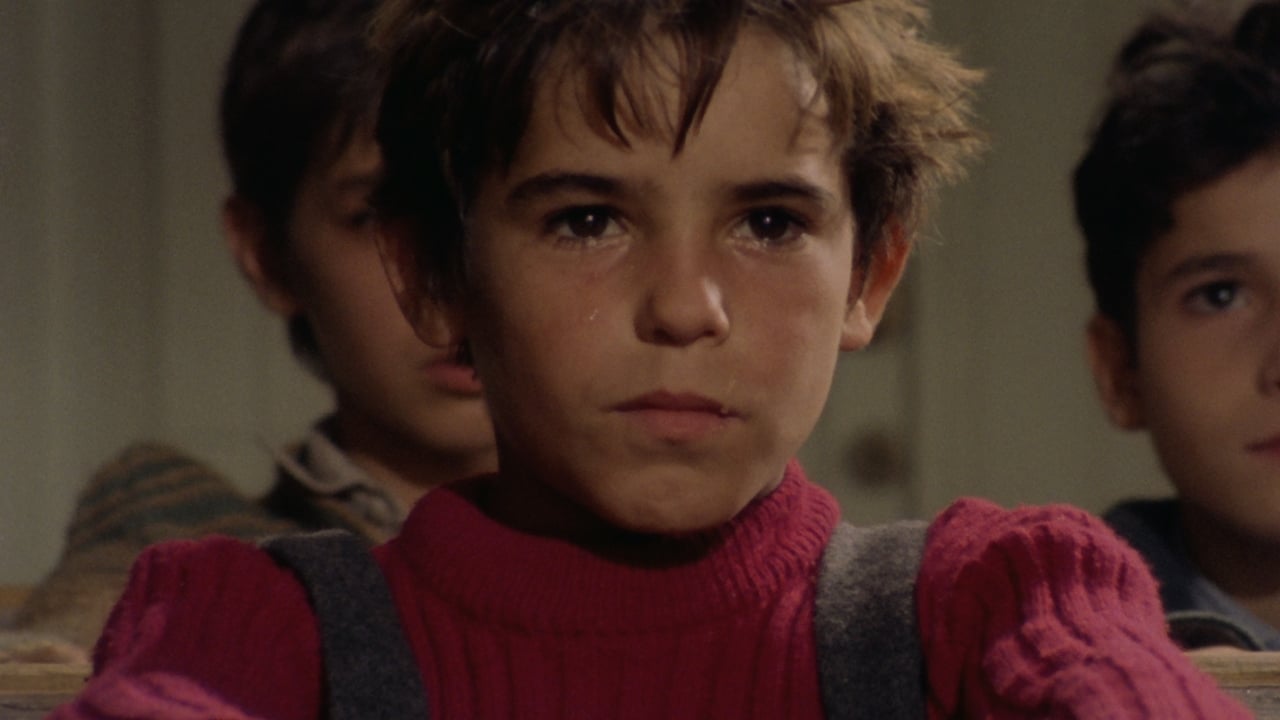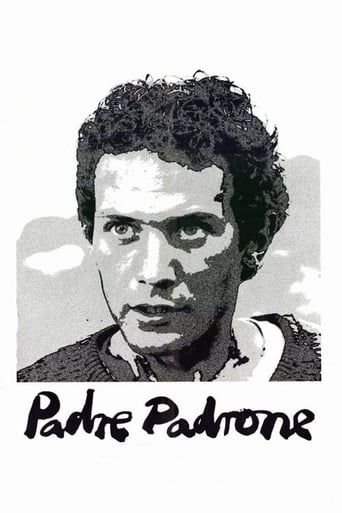

the audience applauded
... View MoreInstead, you get a movie that's enjoyable enough, but leaves you feeling like it could have been much, much more.
... View MoreIt is a whirlwind of delight --- attractive actors, stunning couture, spectacular sets and outrageous parties.
... View MoreThe tone of this movie is interesting -- the stakes are both dramatic and high, but it's balanced with a lot of fun, tongue and cheek dialogue.
... View MoreThe true story of the life of Gavino Ledda, the son of a Sardinian shepherd, and how he managed to escape his harsh, almost barbaric existence by slowly educating himself, despite violent opposition from his brutal father.Janet Maslin praised the film and wrote, "Padre Padrone is stirringly affirmative. It's also a bit simple: The patriarchal behavior of Gavino's father is so readily accepted as an unfathomable given constant that the film never offers much insight into the man or the culture that fostered him. Intriguingly aberrant behavior is chalked up to tradition, and thus robbed of some of its ferocity. But the film is vivid and very moving, coarse but seldom blunt, and filled with raw landscapes that underscore the naturalness and inevitability of the father-son rituals it depicts." Maslin may not be all too familiar with the tradition. If she was, she would appreciate why it needs no explanation. I don't know Sardinia specifically, but I know Sicily, and this behavior would just be expected. There is no deeper psychology behind it. What makes this film interesting is not that a young man overcomes his father (many do that), but that he became a Sardinian linguist... because seriously, who does that? I was not even aware they had their own language.
... View MoreSeeing this film, reminded me of the typical situation of living outside the cities and in the fields.Gavino Ledda, lived a difficult life, which, the worst part, I think, was being isolated and with no contact from the outside of his sardinian life.I've seen that this movie is a polemic one towards being a good film or being a piece of trash, I'd go with the first one. I think that is a good film, making an adaptation of a book is always difficult, and the taviani brothers, did it succesfuly, ok, it is not a masterpiece either. but it's not a bad film, it applies the best it could to the low-budget they had. The Feat comes with the fact that it won the Palm D'Or in Cannes in 1977, and sometimes you might expect a piece of art, comparing it to the 'Tree of Wooden Clogs' that won the next Palm D'Or in 1978, Padre Padrone stands weak, but still I think it's a good movie, I own it, and sometimes watch again to take on some technichal details. If you have the chance see it, I can assure you that even if you don't like it, you won't consider it such a waste of time.
... View MoreDespite the other good comments here, I was really shocked at the number of others who put in their two cents who hated this movie. I saw it in a theater shortly after its original release, then several times on video in the late eighties. I hadn't watched it again until a couple of nights ago, mainly as a reaction to seeing some of the imbecilic remarks here. It's scary because after seeing the film again I realize that Hollywood has alot to answer for in manufacturing twisted junkfood audience expectatations with their atrociously slick homogenization of already shallow stories, push button audience emotion manipulation... oh, well, you get the idea. People fed a constant diet of McDonalds don't recognize a good steak when they bite into one.PADRE PADRONE integrates nearly documentary footage seamlessly with a very realistic, often funny, often poignant but never manipulative depiction of what it's like to grow up the first born son of a nearly impoverished Sardinian shepherd. The beatings the boy receives from his tyrannical father are convincingly shown but in such a way that, especially if you've ever been on a set or involved in filmmaking, you can see that the punches and slaps could be easily pulled without the audience knowing it. The boy's struggle as he grows into a man to express himself and learn how to read and write, no matter how fierce his father's opposition, is truly inspiring because it is so matter-of-fact, so intense but without a shred of the narrative tricks (such as treacly music cues) that Hollywood would pull to needlessly manipulate cheap audience emotion.There's one scene right near the end just before the young man leaves home again for the final time where he has to go to retrieve the family suitcase from under his parents' bed. His angry, powerless dad sits on the edge as his son gropes under him for the suitcase. The two have already come to blows and life-threatening words. Suddenly the young man sinks his head against his father's leg in a brief second of weary contradictory affection. His father instinctively moves his hand to, at first, comfort the boy. But before his fingers can even touch his son's hair he is possessed by temper and raises his hand to strike him instead. However, we don't see if he strikes him or not because the Tavianis cut to black then we next see the son leaving town, going on to his destiny as a linguist and bestselling writer. This simple scene is one of the most unbearably moving in any film from the last thirty years and indicative of the general excellence of the entire movie. The Taviani brothers have made many other good films from ALLONSANFAN with Marcello Mastroianni, through this, through NIGHT OF SHOOTING STARS and the excellent, 3 hour long anthology of stories by Pirandello, KAOS.
... View MoreThe life of an Italian peasant who was forced out of school by his father so as to be a shepherd in the remote country side. The loneliness and the father's brutality has an effect on the boy who grows up to be a late learner in reading and writing. This new knowledge he uses as a weapon against the everlasting battle with his tyrant father. The first half drags on but the second half all comes together.
... View More